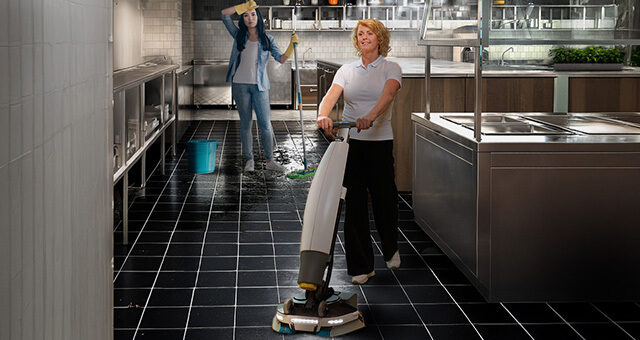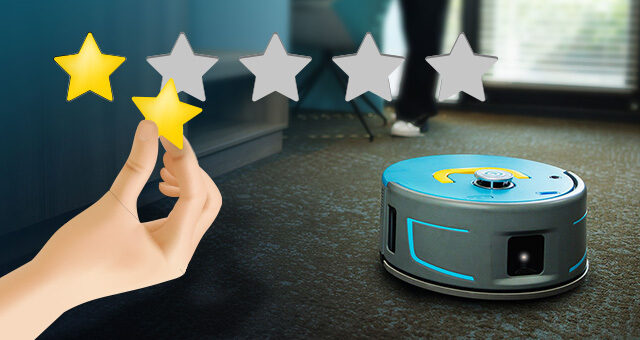
The impact of COVID-19 on cleaning standards
After the pandemic, people now see cleaning as more than just looking good. It has become crucial for public health and hygiene.
People now view hygiene as a way to protect health. It is not just about looking good anymore. This growing awareness has driven stricter standards, innovative technologies, and a cultural shift toward prioritizing health in shared spaces.
How did COVID-19 change cleaning practices?
The COVID-19 pandemic showed how easy it is for germs and bacteria to spread, especially in shared places. After the pandemic, it became clear that people now value functional cleaning more than just looking good. A survey conducted by Ipsos on behalf of ACI shows that 85% of respondents are likely to maintain the same level of COVID-19 cleaning practices, even if the pandemic has passed.
Why is good hygiene essential for public health?
Cleanliness is important for living in a fresh and organized space. It also helps support health and well-being.
A hygienic space can prevent and reduce the risk of diseases from spreading. Cleanliness is essential for both sick people and those around them. You should sanitise and disinfect key areas around any high traffic place, including your personal home.
Simple practices that save lives
Maintaining adequate sanitation and hygiene could prevent a huge number of deaths. It starts with:
- Washing your hands with soap and water or using hand sanitizer
- Using the right cleaning products to clean the area
Meeting rising hygiene demands
Many industries are facing a shortage of cleaning staff, while the need for hygienic spaces continues to rise.
Companies increasingly use autonomous cleaning technologies to bridge this gap. They help by:
- Maintaining high hygiene standards
- Reducing physical strain on staff
- Freeing up time for employees to focus on detailed tasks
Will cleaning robots replace humans?
After the COVID-19 pandemic, authorities put strict hygiene rules in place. These rules aimed to stop the spread of diseases and improve health and safety. These regulations led to a redesign of working conditions to ensure cleanliness and safety in public environments: shifting focus to autonomous cleaning machines.
The use of autonomous cleaning machines in the professional sector has raised concerns. People worry about how these machines might affect human jobs. However, the purpose of these machines is not to replace the employees, but to be a partner for them.
Real-life examples:
Healthcare setting: Cleaning staff can spend more time managing sterile medical supplies. They can also coordinate logistics with clinical teams. This is better than spending most of their time mopping large floor areas.
Schools: Autonomous machines can clean large areas like gyms and hallways. This lets cleaning staff focus on sanitizing high-touch surfaces. They can clean desks, door handles, and shared
Why are sustainable cleaning practices better?
As environmental sustainability becomes a global priority, it is essential to rethink traditional hygiene practices and embrace eco-friendly solutions.
Sustainability is about maintaining public health and preserving the environment. Sustainable sanitation practices minimize plastic and harsh substance use, helping protect the environment while preventing disease spread and safeguarding vulnerable individuals.
At i-team Global, we believe in smart cleaning solutions that combine innovation, sustainability, and science. Our equipment is designed to deliver excellent hygiene outcomes, whether it’s in a hospital corridor, a school hallway, or a hotel lobby.
How does cleaning contribute to health and well-being?
Clean environments do more than create a pleasant atmosphere, they support health and well-being. Cleaning is no longer just about looking good, it’s about doing good.
Discover i-team Global’s solutions. They offer autonomous cleaning machines and eco-friendly cleaning agents. These products protect both people and the planet.
FAQ:
Will cleaning robots replace humans?
No, cleaning robots will not replace humans. The purpose of the robot is to support the human, freeing space for the user to focus on detailed tasks.
Why should businesses invest in professional cleaning solutions?
Hygienic environments protect health, improve safety, and enhance trust among customers and employees.
Are autonomous cleaning machines cost-effective for facilities?
Yes. They reduce physical strain, improve efficiency, and ensure consistent cleaning, which lowers long-term operational costs.
How often should high-traffic areas be cleaned?
Cleaning daily and disinfecting high-touch surfaces often are important. This helps stop the spread of germs and keeps public health standards.





